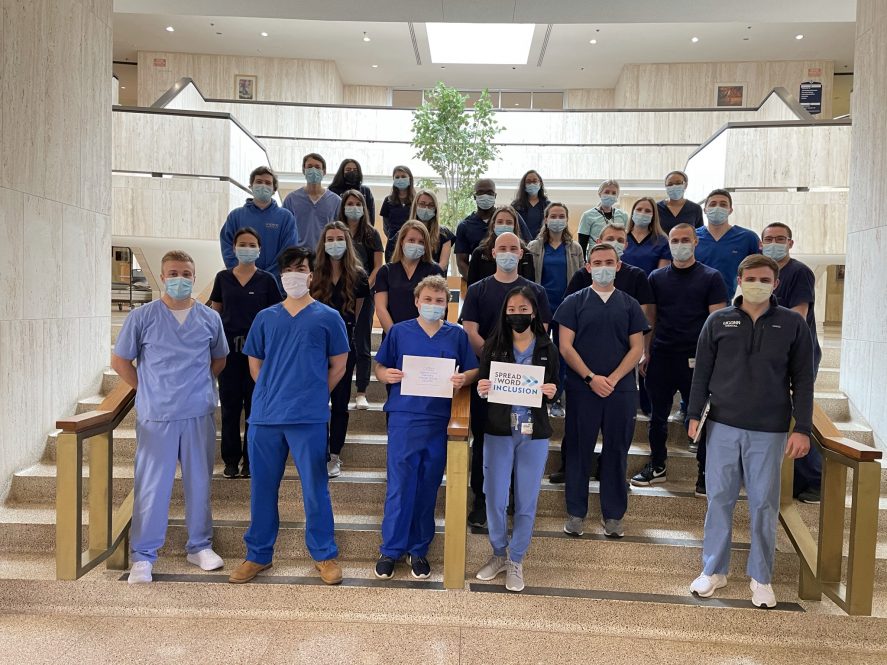This month, students in the UConn School of Dental Medicine Special Care Dentistry Interest Group (SCDIG) hosted a Week of Inclusion to show support, learn, and discuss the importance of inclusion and connection for people with intellectual and developmental disabilities in dentistry.
“The Week of Inclusion is a great opportunity to share our interests and the importance of including patients with intellectual and developmental disabilities (IDD),” said Sarah Feltz, third year student and president of the SCDIG, “We are dedicated to educating ourselves on special care dentistry and what we can do for these patients and their families in our future practices. We hope that the events during the Week of Inclusion get our classmates excited and engaged to continue to learn about caring for patients with IDD.”
“Inclusion goes both ways,” said Dr. Steve Ruiz, assistant professor and SCDIG faculty advisor. “Children with special needs usually develop better social and life skills while in the community – not in institutions and children who do not have any special needs also develop better skills, empathy and compassion. The State of Connecticut Department of Developmental Services had made tremendous strides in changing this philosophy.”
Spread the Word—a global engagement campaign that empowers leaders and peers to take action for inclusion in all capacities—is the inspiration behind the Week of Inclusion. This year’s word, “inclusion,” is highlighted through the theme of “connection” in an effort to inspire connection through inclusion.
To mark the occasion, students of the SCDIG organized a series of events and activities for dental students, including a random acts of kindness initiative, #BeDaena, in memory of patient with special needs.
“We wanted to include an aspect of service throughout the week of inclusion, said Rebecca Salustri, third year dental student and treasurer of the SCDIG. “In light of social distancing, our members opted to promote random acts of kindness, which can be done from a distance or even virtually. We were inspired to do this through the #BeDaena initiative. This platform honors the life and spirit of Daena of Columbia, Connecticut, who had special needs.”
The students organized several other events, including a podcast discussion that explored “Special Care Dentistry”—a specialty that attempts to address the dental needs of those who have IDD, are homeless or have other debilitating diseases such as Alzheimer’s. The students discussed why these types of patients are consistently turned away from dental offices, and emphasized the importance of learning how to treat these individuals so they can establish their own dental health habits.
“Inclusion to me means making an active choice to learn about special care dentistry, so that in the future I can assist and treat patients with special needs in my dental office,” said Lauren Gross, second year dental student and SCDIG On Campus Event Coordinator. “For the week of inclusion, SCDIG planned multiple events to educate students in different and engaging ways about special care dentistry, so that we can become more inclusive and compassionate providers.”
A day of wearing blue to show support for Spread the Word, a trivia night, and a movie night that highlighted movies and characters with special needs were also among the events planned for the week.
“It was very encouraging to see so many students showing their support of individuals with intellectual and developmental disabilities during this year’s Week of Inclusion,” said Tyler Guido, third year dental student and SCDIG president. “To me, inclusion is a crucial part of our profession, as we are here to treat all individuals no matter what health conditions they may have, nor how difficult it may be to treat them. For years, individuals with intellectual and developmental disabilities have been neglected by our healthcare system. It is my hope we can be motivated and confident enough to treat these patients in our future practices and provide them with a dental home they may have been trying to find for a long time.”



